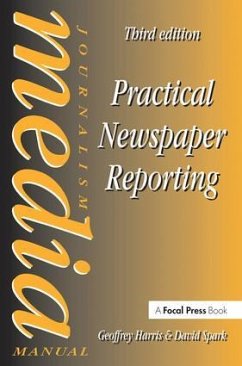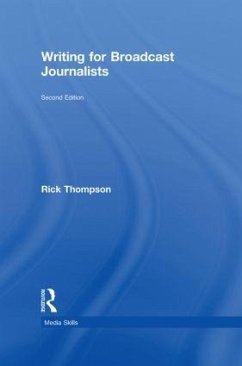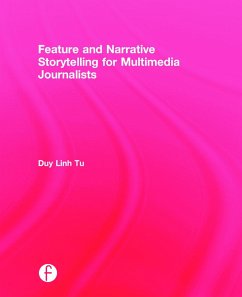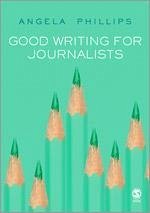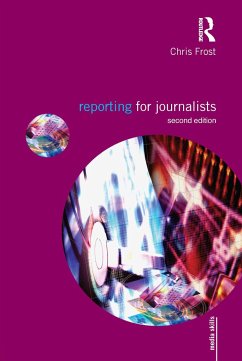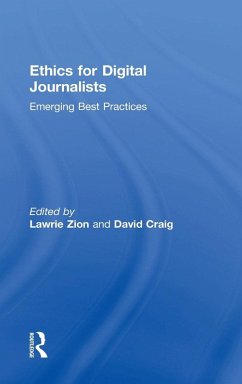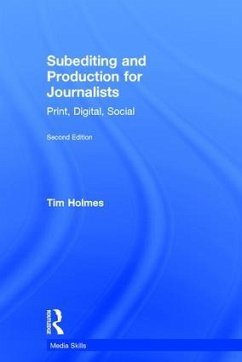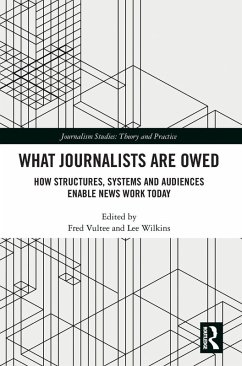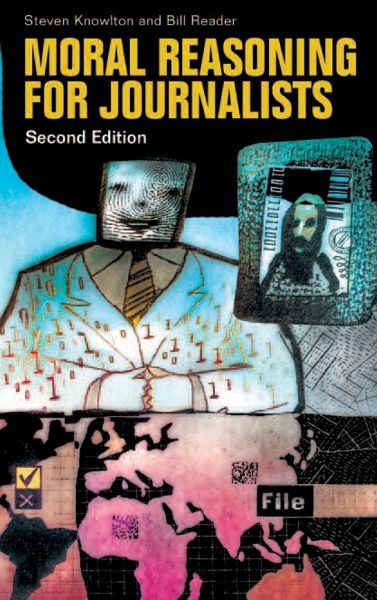
Moral Reasoning for Journalists
Versandkostenfrei!
Versandfertig in 1-2 Wochen
88,99 €
inkl. MwSt.
Weitere Ausgaben:

PAYBACK Punkte
44 °P sammeln!
Despite the fact that the public's trust in the news media is at historic lows, despite the fact that hardly a day goes by without another report of unethical behavior by news professionals, journalists and teachers remain dedicated to ethical issues-perhaps more so now than at any other time in history. News companies are developing rigorous codes of conduct; journalists and editors are vigorously reporting on ethical lapses by their peers, and many journalism schools are creating standalone courses in journalism ethics and hiring faculty members who are devoted to ethics research and instruc...
Despite the fact that the public's trust in the news media is at historic lows, despite the fact that hardly a day goes by without another report of unethical behavior by news professionals, journalists and teachers remain dedicated to ethical issues-perhaps more so now than at any other time in history. News companies are developing rigorous codes of conduct; journalists and editors are vigorously reporting on ethical lapses by their peers, and many journalism schools are creating standalone courses in journalism ethics and hiring faculty members who are devoted to ethics research and instruction. Using more than two-dozen actual cases from around the world to examine and apply those principles of ethical journalism, Knowlton and Reader suggest an easy-to-follow, commonsense approach to making ethical decisions in the newsroom as deadlines loom. Moral Reasoning for Journalists serves as an introduction to the underpinnings of journalism ethics, and as a guide for journalists and journalism teachers looking for ways to make ethical choices beyond going with your gut.





